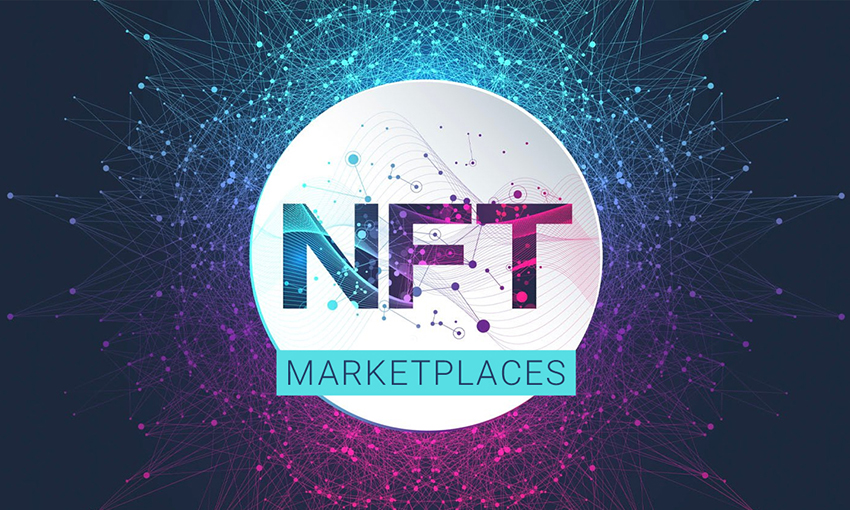NFT marketplaces are online platforms where unique non-fungible tokens related to art, video, and audio can be bought and sold. Each NFT has its own digital identity. These marketplaces use blockchain technology to verify the provenance of these digital products. They are also used for digital auctions. NFTs can be bought and sold on these sites for various cryptocurrencies.
Table of Contents
Platforms That Allow Users to Store NFTs
NFTs, or non-fungible tokens, are a unique class of tradable digital assets. Unlike a dollar, one person can only own an NFT at any given time, so each unique digital asset has its value. NFTs are versatile and represent almost anything digital, from artwork to video games. These digital assets can then be displayed and traded through a decentralized marketplace. NFT platforms are similar to eCommerce platforms but have a few key differences.
Some NFT marketplaces are very general, while others have a specific niche focus. Some are accessible to everyone, while others require an invitation. For example, Foundation is an art curation platform based on the Ethereum blockchain that allows artists to sell their artwork in exchange for crypto. It is a popular choice for collectors and enthusiasts but cannot be noticeable for new users.
Platforms Where People May Purchase And Trade NFTs
A reputable NFT marketplace platform with a simple user interface will support multiple cryptocurrency wallets. The platform should also allow users to link their existing crypto wallets or create a new one on the site. The site should also feature a search capability so customers can locate what they’re looking for and a list of available NFTs. The underlying technology for these platforms is blockchain, which is used to record and verify transactions. It makes NFTs unique because they are non-fungible, meaning each is unique and can only be sold once. They are thus perfect for various uses, including internet shopping and digital art.
To buy NFTs, users must first register with the platform and connect their cryptocurrency wallet. It will usually be an Ethereum or other blockchain-based wallet that supports the particular token used in a given NFT marketplace. Some NFT marketplaces are open to the public, while others are curated and only accept submissions from specific artists or creators. NFT markets are a fantastic method to acquire and sell NFTs, but you should do your homework before selecting one. There are many different NFT marketplaces, some very general and others specializing in a specific type of NFT, such as video games. Some NFT marketplaces are open to anyone, while others require registration or are by someone’s invitation only.
Platforms That Allow Users to Create NFTs
Digital assets, NFTs, or non-fungible tokens stand in for whole things in games and other virtual environments. They are traded through transactions logged on multiple computers in a peer-to-peer network. Examples include virtual baseball cards and collectibles and virtual goods like weapons and clothing in games. NFTs can also represent real-world items, such as a ticket to a concert or a meet-and-greet with an athlete. Several NFT marketplaces allow users to create and sell their creations. These marketplaces range from curated to un-curated and offer different features for users. For example, some specialized services allow artists to promote their NFTs and increase the odds of success actively. These specialized services can include NFT-specific marketing and public relations, such as podcasts and articles in niche newspapers. Users can use a crypto wallet to store their NFTs. NFT marketplaces typically support a variety of wallets. These wallets should be compatible with the NFT marketplace and provide enhanced security. The NFT marketplace should also offer comprehensive user management, which includes listing, buying, and selling history.
Platforms That Allow Users to Trade NFTs
A user-friendly and reputable NFT marketplace is essential for buyers. It should have a user management system with a database of all transactions and listing data. It should also allow users to track and monitor their NFTs, including the ones they’ve bought, sold, or approved. It should also provide comprehensive customer support via live calls or chat. Various blockchains and tokens must be supported by the NFT marketplace, which must also be confirmed. Some NFT marketplaces are open to any crypto or token, while others are closed marketplaces that use a proprietary token. Some NFT marketplaces also offer content moderation, allowing them to blacklist unauthentic or illegal NFTs. While this may not align with the philosophical intent of immutable blockchains, it can help protect the platform’s integrity. Several NFT platforms allow users to buy and sell digital art, music, and more. Some platforms are open to anyone, while experts curate others. Other NFT marketplaces specialize in specific genres of digital art, such as a video games or a piece of virtual reality. They can even include a meet-and-greet or VIP upgrade for their customers.





